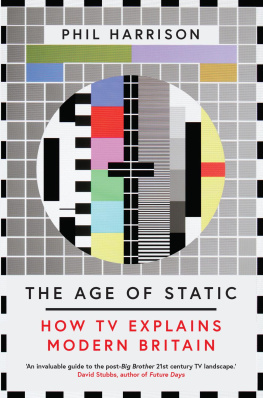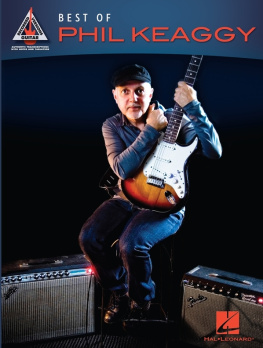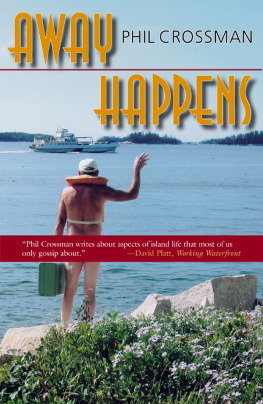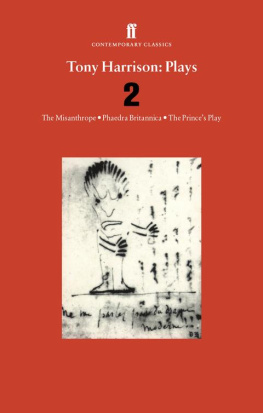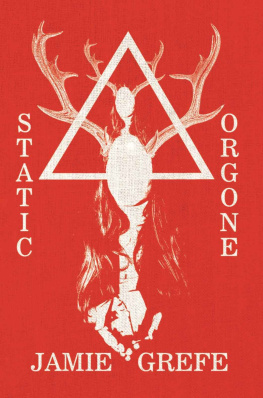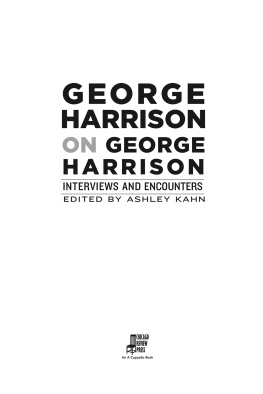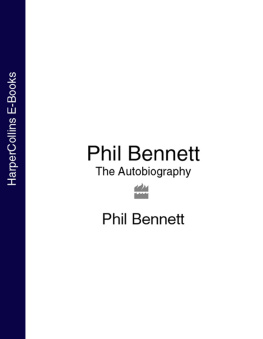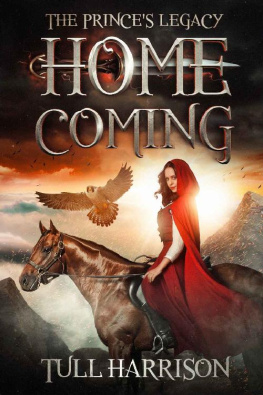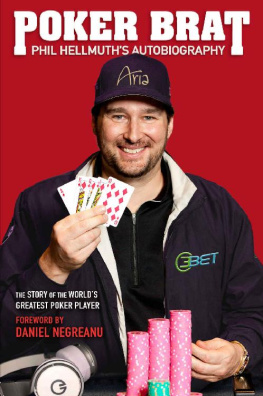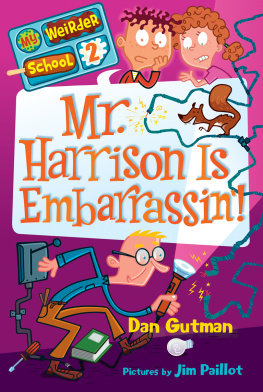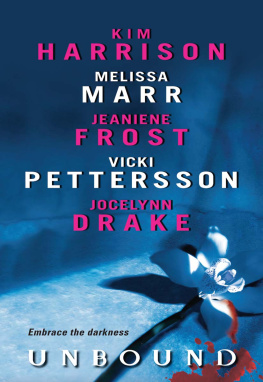Phil Harrison - The Age of Static
Here you can read online Phil Harrison - The Age of Static full text of the book (entire story) in english for free. Download pdf and epub, get meaning, cover and reviews about this ebook. year: 2020, publisher: Melville House UK, genre: Art. Description of the work, (preface) as well as reviews are available. Best literature library LitArk.com created for fans of good reading and offers a wide selection of genres:
Romance novel
Science fiction
Adventure
Detective
Science
History
Home and family
Prose
Art
Politics
Computer
Non-fiction
Religion
Business
Children
Humor
Choose a favorite category and find really read worthwhile books. Enjoy immersion in the world of imagination, feel the emotions of the characters or learn something new for yourself, make an fascinating discovery.
- Book:The Age of Static
- Author:
- Publisher:Melville House UK
- Genre:
- Year:2020
- Rating:5 / 5
- Favourites:Add to favourites
- Your mark:
- 100
- 1
- 2
- 3
- 4
- 5
The Age of Static: summary, description and annotation
We offer to read an annotation, description, summary or preface (depends on what the author of the book "The Age of Static" wrote himself). If you haven't found the necessary information about the book — write in the comments, we will try to find it.
The Age of Static — read online for free the complete book (whole text) full work
Below is the text of the book, divided by pages. System saving the place of the last page read, allows you to conveniently read the book "The Age of Static" online for free, without having to search again every time where you left off. Put a bookmark, and you can go to the page where you finished reading at any time.
Font size:
Interval:
Bookmark:
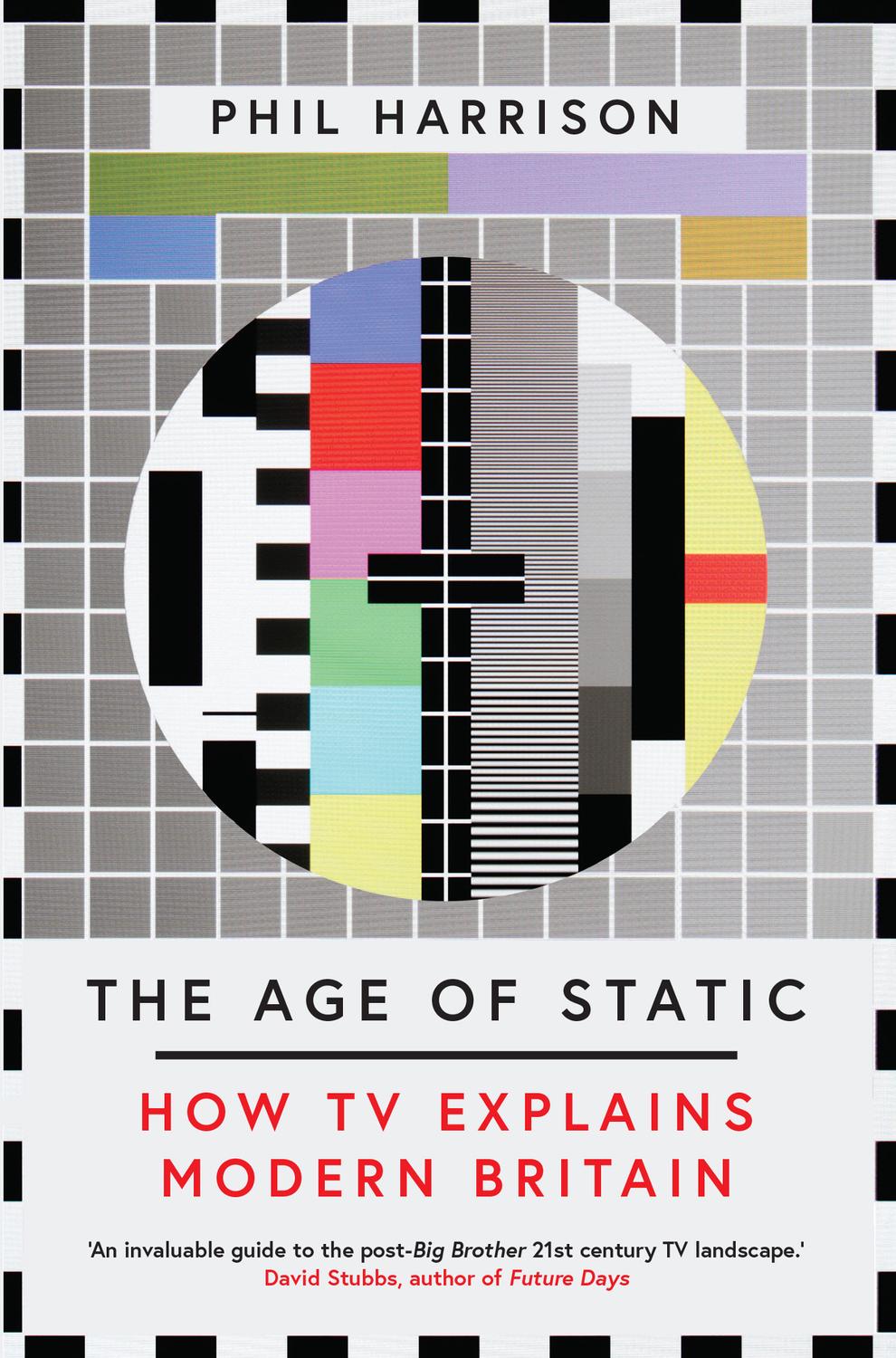
- INTRODUCTION FROM CRAGGY ISLAND TO BREXIT ISLAND
Father Ted Louis Therouxs Weird Weekends Brass Eye The Girlie Show Our Friends in the North - 1 REALITY TV REALITY
Big Brother The Apprentice Britains Hardest Workers The Office The Thick of It Have I Got News for You - 2 HOW THE OTHER HALF LIVE
Little Britain Shameless Relocation, Relocation Jamies School Dinners The Secret Millionaire The Jeremy Kyle Show Benefits Street Fleabag - 3 CULTURE WAR
Top Gear Brass Eye Special The Great Global Warming Swindle Has Political Correctness Gone Mad? British Workers Wanted HyperNormalisation - 4 HOW THE BBC BECAME THE STORY
Newsnight Panorama Louis Theroux: Savile Question Time The Future State of Welfare BBC News W1A Climate Change The Facts - 5 A VERY BRITISH IDENTITY CRISIS
The Great British Bake Off Downton Abbey Southcliffe This Is England 90 The League of Gentlemen Detectorists Brexit: The Uncivil War - EPILOGUE CRADLE TO GRAVE
63 Up Gogglebox Doctor Who Killing Eve Years and Years - POSTSCRIPT VIRAL CONTENT
BBC Parliament The Crown The Windsors BBC News Panorama Hospital Gogglebox Newsnight Our Finest Hours

Father Ted Louis Therouxs Weird Weekends Brass Eye The Girlie Show Our Friends in the North
TELEVISION ISNT ALWAYS TAKEN as seriously as it deserves to be. In fact, its often unfairly dismissed as the most disposable, least permanent of art forms. But television, perhaps more than any other art form, is political. Not always textually regardless of intention, its rare for a particular show to resonate widely enough to cause substantive change. Instead, the politics of television is contextual. It offers us a widescreen view of subtle and incremental social shifts; of building and subsiding currents. This applies particularly to the UK: theres an inescapability to British television, a universal quality which will persist for as long as the BBC, ITV and Channel 4 maintain public service duties. It remains an indispensable road map to the British psyche.
Accordingly, British television is often a battleground. Its one of the few places where we cant get away from each other, and in many ways, thats the genius of the countrys broadcasting model. In America, if they so desire, viewers can vanish down a Fox News or CNN rabbithole and never be confronted by uncomfortable ideas from an opposing perspective; here, television is a mirror into which we are all forced to look. Even people who rail furiously against the BBC and all they imagine it to stand for are, in their opposition, defined by it. Graphic novelist and writer Alan Moore posits the notion of Ideaspace: a sort of collective unconscious where psychic associations run free, apparently discrete ideas cluster in unlikely proximity, storms begin to brew and thoughts eventually take tangible forms. Thanks to its ubiquity and speed of turnover, television is a living, breathing, public example of this phenomenon.
I fell into writing about television in the summer of 2000. I wanted to be a culture journalist and TV criticism turned out to be the easiest point of entry. Time Out magazine gave me my first break. Initially it was a slog: my work centred around the compilation of listings pages, and the torturous task of summarising the synopsis of an EastEnders episode in six words or less. Quickly, though, I realised how lucky Id been; how unique and telling a medium television was. To sift and parse Britains television is to investigate the countrys collective mental evolution. For a variety of reasons, ranging from the often miserable winter weather to the totemic and frequently well-deserved reputation of the BBC, Britain is a TV nation in a sense that few if any other countries are. The British take television seriously and, in both its best moments and its worst, television takes the British seriously too. Television is a palimpsest of the national mood.
Almost everything in the television firmament has changed between the end of the 1990s and now. But theres one document of the era that wont go away and thats mainly because nobody in their right mind would want it to. Only three series were made of Graham Linehan and Arthur Mathews peerless 1995 sitcom Father Ted, yet this Irish show is one of British TVs enduring glories; a proposition that can be tested almost every evening on More4. The show was showered in Bafta awards back in the 1990s. But its impact has been felt more widely than that, in a way that illustrates the soft power of the medium very satisfyingly. To this day, if you attend a protest march almost regardless of the cause youll see banners reading Careful now or Down with this sort of thing. These almost incidental phrases from Father Ted which appeared during Ted and Dougals reluctant protest against a risqu film have become a universal symbol, shorthand for a certain kind of charmingly absurdist gentility. The show has broken free from its moorings and become part of Britains public language. From Monty Pythons Flying Circus through to the various adventures of Alan Partridge, British television programmes have managed this trick with surprising regularity. Theyve identified archetypes and rendered them identifiably comic or tragic. Theyve become an intrinsic part of the way we view ourselves and each other.
Ian MacDonald concluded the monumentally gloomy introductory essay to his epic survey of The Beatles, Revolution in the Head, with the following statement. Far away from us, on the other side of the sun-flooded chasm of the 60s The Beatles can still be heard singing their buoyant, poignant, hopeful, love-advocating songs. Something similar can be claimed in relation to Father Ted and Britain in the 1990s. We all agreed on its brilliance, and on the basis of its regular appearance in both TV schedules and viewer-voted Best of lists, we still do. In that sense, it feels like the last show of its kind the final offspring of a lineage that also encompasses Morecambe and Wise, Only Fools and Horses and Fawlty Towers. Its the generous, inclusive product of an era during which, despite pockets of unease, most of us were still able to sit down and laugh at the same things.
Who could possibly have imagined how rare and precious this consensus would seem twenty years later? Symbolically, even Graham Linehan is now a divisive figure, immersing himself in acrimonious debates about trans rights on Twitter. Think of the most successful post-millennium TV comedies. If your definition of success is commercial, its hard to look beyond Mrs Browns Boys. If critical acclaim is your yardstick, the Comedy Vehicles of Stewart Lee might be your strongest option. But those shows dont live in their own gentle, cartoonish bubble, like Father Ted. They divide, possibly deliberately. Mrs Browns Boys feels proudly, almost militantly mindless as if daring you to sneer at its antediluvian gormlessness. Stewart Lees Comedy Vehicle, meanwhile, is deliberately and self-reflexively antagonistic. They are lightning rods; participants in a seemingly escalating culture war. They set urban against provincial. White collar against blue. They are both loved and hated. In the bitter, tribal Brexit era, they are no longer simply TV comedies, they are symbols. They feel a long way from the 90s.
The political scientist Francis Fukuyama famously described the fall of communism and the accompanying triumph of neoliberal capitalism at the start of the 1990s as the end of history. So, in an apparently post-historical world, what defined British TV in the 90s? Much of it frolicked in the freedom afforded by that departed weight. For a while, anything went. In 1997, a programme called
Font size:
Interval:
Bookmark:
Similar books «The Age of Static»
Look at similar books to The Age of Static. We have selected literature similar in name and meaning in the hope of providing readers with more options to find new, interesting, not yet read works.
Discussion, reviews of the book The Age of Static and just readers' own opinions. Leave your comments, write what you think about the work, its meaning or the main characters. Specify what exactly you liked and what you didn't like, and why you think so.

